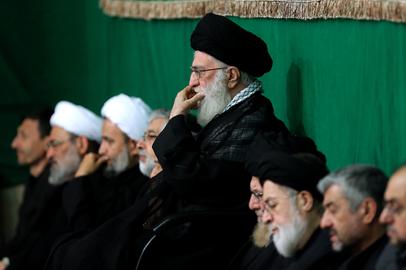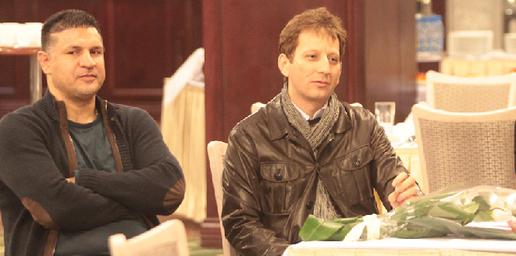After the suicide bombings in Sri Lanka I re-read Salman Rushdie’s “Joseph Anton: A Memoir.” It is partly an autobiographical account of Rushdie’s life under the fatwa issued by Ayatollah Khomeinei, and partly an exploration of extremism.
He makes the point that murderous fundamentalism starts small, with a single event. Then, before anyone understands the danger, it grows and gathers into a movement with vast reach.
Rushdie evokes a scene from Alfred Hitchcock's movie “The Birds”.
“ ... The children in the classroom in Bodega Bay, California, sing a sad nonsense song. ... Ristle-te, rustle-te, mo, mo, mo. A single blackbird flies down from the sky and settle on the climbing frame in the playground ... [then] There are four blackbirds on the climbing frame, then a fifth arrives ... now there are hundreds of blackbirds on the climbing frame and thousands more birds fill the sky, like a plague of Egypt ...
In the years to come he will dream about this scene, understanding, that his story is a sort of prologue. ... When it begins it’s just about him; it’s individual, particular, specific. Nobody feels inclined to draw any conclusions from it. It will be a dozen years and more before the story grows until it fills the sky, like the Archangel Gabriel standing upon the horizon, like a pair of planes flying into tall buildings ...”
Or like nine young men on Easter Sunday setting out with explosives in their backpacks to commit mass murder.
Extremism is appealing because it’s easy. There are no subtleties. Life’s contradictions are erased by hard and fast rules.
The roots of the Islamic extremism spread by ISIS lie in the 13th century, when a jurist named Sheikh Ibn Taymiyya broke the enemies of Islam into four groups:
- Infidels such as Christians, with whom it was permissible to make peace agreements and share meals. Their lives might be spared once they had been turned into prisoners.
- Muslims who had reverted to infidel habits, who must be fought if they refused to return to the fold.
- Those who declared themselves Muslim but failed to carry out Islamic rituals properly, and so had to be killed.
- Those who rejected Islam while still claiming to belong to it, and so deserved no mercy.
As I recall, Rushdie once told a BBC interviewer that those who had issued the fatwa against him had no sense of humor. It’s an astute observation. Humor requires irreverence, and fundamentalists have none, so dourly convinced are they of their monopoly on the truth and the infallibility of their rules.
Pity us poor Iranians, condemned to live in a country where humorless extremism is the very foundation of the state. Our blackbirds began to fill the sky in the late 1970s. Now it is too late.
visit the accountability section
In this section of Iran Wire, you can contact the officials and launch your campaign for various problems




















comments
The problem with this piece is its superficial analysis of extremism and it that way it abnormalises extremists as purely religious fanatics lacking humour instead of placing them within history. The writer of this piece will therefore not be able to explain what really happens. But it is also so naive in that it assu mes that religious extremists are the only bad guys in the world. And while a critique of the Islamic republic has merits to lump it as extremist is simply wrong. Salman Rushdi's complex troublesome life as a young Indian student in white Britain is simply ignored meaning the impact it had on him. By presenting him as this complete victim of extremism and innocent and letting him say his only wrong was that he shared some humour which extremists are incapable of is simply baffling. But more telling is that by providing this quote from Rushdi's "Joseph Anton", "Nobody feels inclined to draw any conclusions from it. It will be a dozen years and more before the story grows until it fills the sky, "Nobody feels inclined to draw any conclusions from it. It will be a dozen years and more before the story grows until it fills the sky, like the Archangel Gabriel standing upon the horizon, like a pair of planes flying into tall buildings …” , like a pair of planes flying into tall buildings …” the piece (perhaps unintentionally) suggests that extremism is not a 13th century phenomenon but begins with Islam itself where the Archangel Gabriel standing upon the horizon represents as Muslims believe Prophet Muhammad receiving revelation and where "like a pair of planes flying into tall buildings …” refers of course to 9/11; in other words, the latter has its roots in the former. It is pieces like this (however well meaning it is) that open the way for those in the US administration wanting war. ... read more